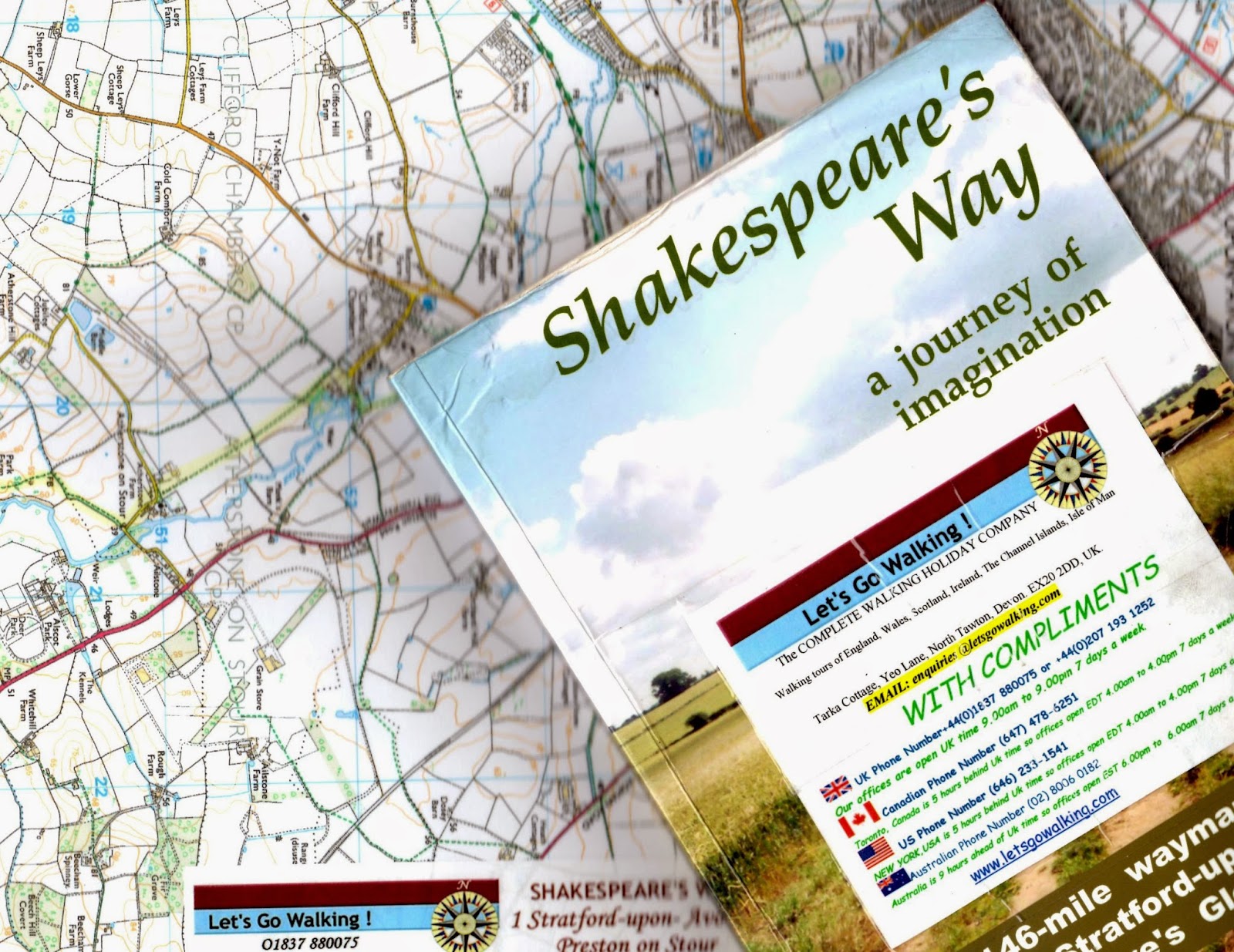This was my initial reaction as
I tried to walk, scratch my head, chew my lip, and read the Shakespeare’s Way guide book heading out of out of town and
onto the trail.
You try it. Read
the paragraph below out loud. Put it down, and then repeat any sentence from it without screwing
up the sequence, leaving out a vital detail, or checking the text three times. Not possible.
It
reads like something written to purposely confuse and maybe even
intimidate.
I almost tossed the thing away assuming that
the detailed Ordinance Map would be all we needed to find the next town and our next bed. But
we learned that the guide book, not the map, would save us.
The
trick is just to wait and not use the book until you think you might be getting
lost.
 Then,
at that moment, stop, stand still and read the section about the place where
you think you are – because, at this point, you can check the tortuous text
against your surroundings. You can look
around for the pair of oak trees, the “scrappy fence,” and the dip at the end
of the field. It works. The words not only make sense, they comfort
you with assurance that you are where you are supposed to be and more
importantly that you may even be headed in the right direction.
Then,
at that moment, stop, stand still and read the section about the place where
you think you are – because, at this point, you can check the tortuous text
against your surroundings. You can look
around for the pair of oak trees, the “scrappy fence,” and the dip at the end
of the field. It works. The words not only make sense, they comfort
you with assurance that you are where you are supposed to be and more
importantly that you may even be headed in the right direction.
Learning
to let go of the map, to disregard our gut feelings, and to lean on the
detailed text of the guide book constituted one of the foundational lessons we
absorbed after leaving Stratford-Upon-Avon behind and heading into the north Cotswolds countryside. We
also had to learn to walk confidently through backyards, laneways, and other private
lands as part of England’s well established public right of way system.
People waved, hundreds of lambs circled around
us, and dogs yawned.
In Canada, we
would definitely feel like we were abusing someone’s privacy, and in parts of
the U.S., we would be guilty of gun-shot-worthy trespassing.
Other
basic lessons included the need to not expect rest stops on the way. Many pubs,
like the Clifford Chambers’ one (it's the name of a village not a tweedy old man), operate on schedules
designed to ensure they are closed when we needed them. Stores like the tiny shop in Preston-on-Stour have no rest rooms, and evidently, as I also learned, English trail etiquette
deems it poor form for walkers take advantage of their gender in this context.
 At
the Bell Inn in Alderminster that afternoon and at the Poplars farmhouse in
Newbold-on-Stour that night, we talked about dodging the sheep dung, getting
lost using the map, and finding our way reading long paragraphs about fences,
fields, and trees as if they were big adventures - and we felt many different kinds
of relief.
At
the Bell Inn in Alderminster that afternoon and at the Poplars farmhouse in
Newbold-on-Stour that night, we talked about dodging the sheep dung, getting
lost using the map, and finding our way reading long paragraphs about fences,
fields, and trees as if they were big adventures - and we felt many different kinds
of relief.
One came from clutching onto that wordy and quirky guide book.


